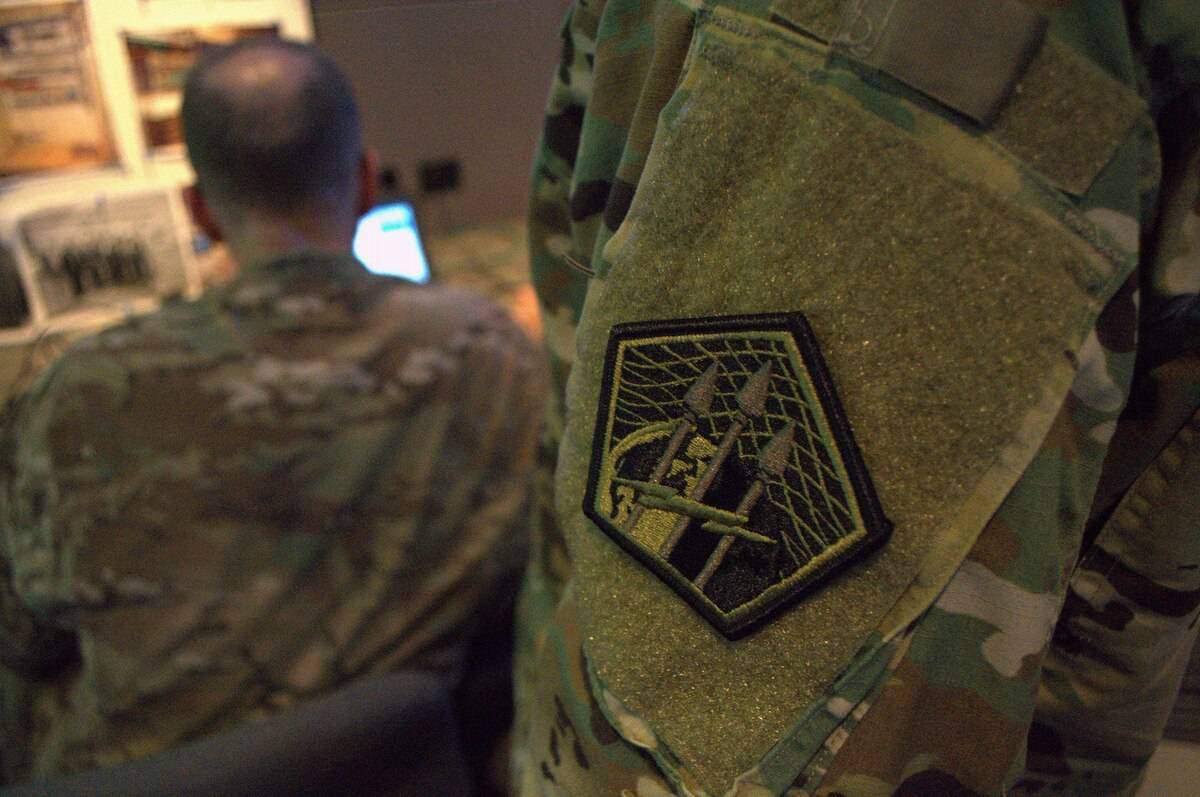National Guard task force that supports Cyber Command changes over

The Army recently announced a new tranche of National Guard units to staff a critical and ongoing task force for U.S. Cyber Command.
Members of the 123rd Cyber Protection Battalion — made up of guardsmen from Illinois, Minnesota, Virginia and Wisconsin – relieved the 15-month deployment of the 124th Cyber Protection Battalion for Task Force Echo, an Army announcement said.
The task force was described at its outset in 2017 as the largest mobilization of reserve forces in cyberspace, and to date over 600 National Guardsmen have been assigned to it. Now in its fifth iteration, soldiers will begin a 12-month deployment based at Fort Meade in Maryland.
Few details are publicly known about the task force, other than it supports full spectrum cyber operations. While under the control of Army Cyber Command’s 780th Military Intelligence Brigade, which conducts offensive cyber operations for Cyber Command, the task force has supported Cyber Command’s Cyber National Mission Force, which conducts offensive cyber operations under the guise of defense to protect the nation from malicious cyber actors. Sources have indicated that it has also supported Joint Task Force-Ares, which seeks to limit the Islamic State group’s abilities in the digital world.
While not “trigger pullers,” sources have also indicated the task force provides infrastructure support.
The task force has been described as beneficial to all organizations involved.
“I was impressed by the soldiers of Tasks Force Echo IV. They brought their real-world experience managing networks to the Army and made our organization better,” Col. Matthew Lennox, commander of the 780th Military Intelligence Brigade, said at an awards ceremony for the outgoing battalion. “Their knowledge and experience enabled teams within the Cyber National Mission Force and the different service Joint Force Headquarters to accomplish their mission. The Task Force Echo soldiers were integral members of the brigade team.”
The Army in recent years has begun to incorporate the National Guard and Reserve forces into all aspects of its cyber mission.
“We consider a total Army solution (Guard, Reserve and active) when addressing any ARCYBER mission,” a spokesperson for Army Cyber Command said.
“ARCYBER’s transformation will be significantly less successful without thoughtful integration of Army Reserve and Army National Guard Cyber, and Information Warfare capabilities and forces,” Lt. Gen. Stephen Fogarty, commander of Army Cyber Command, wrote in the Cyber Defense Review in July, regarding the command’s transformation to focus more holistically on “information advantage,” rather than just cyber.
Fogarty noted in his essay that Army Cyber Command will create a “long-needed” new offensive cyber operations signal battalion to be at Fort Gordon in late 2021 and provide support to Army cyber forces. The battalion will reflect the mission previously performed by National Guard forces as Task Force Echo, Fogarty said.
Details are still not available regarding the new battalion, a spokesperson said, adding there are no plans to reverse integration of the National Guard and Reserve capabilities into the total force concept.
Photo: The 123rd Cyber Protection Battalion is taking its turn to support Task Force Echo V and U.S. Cyber Command.(Army Cyber Command)
Link: National Guard task force that supports Cyber Command changes over (c4isrnet.com)




